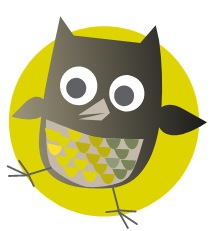As part of an ongoing programme of language research, the department of Children’s Dictionaries & Children’s Language Data at Oxford University Press has analysed children’s creative writing submitted to the BBC 500 WORDS story competition in 2023 and the results are out today!
You can find all the details about the winners of the 500 words story competition on the BBC 500 words website, and download the full 500 words report for all the language analysis from OUP.
The analysis is undertaken by a team of lexicographers, editors and teachers, and is based on the Oxford Children’s Corpus, the largest children’s language database in English.
Key Findings from the Report
• Themes around contemporary conflicts feature more prominently in the stories than in previous years.
• There is a shift away from the topic of Brexit, with very few mentions of this word (and none in a political context).
• There is a substantial increase in the frequency of AI in the stories – often in relation to a dangerous entity that could take over the world.
• The stories indicate an increasing awareness of neurodiversity, and conditions are often portrayed as a strength.
• Barbie occurs twice as frequently in stories from 2023 than 2020.
• TikTok is seen as a more established app and part of everyday life in 2023.
• Lioness(es) increased in frequency compared with 2020, and over half of the mentions were in reference to football. In 2020, almost all mentions of lioness(es) were references to the animal.
• The 2023 stories are the first to demonstrate a lived experience of Covid in the UK, and the pandemic is evidently still a reference point for children.
Insights from the 2023 stories
• The proportion of boys and girls who submitted a story in 2023 was 39% and 61%respectively. Excluding names, words that are used much more frequently by boys than girls include: Madrid, titan, league, Godzilla and champions. Meanwhile, words that are used much more frequently by girls than boys include: gymnastics, pony, foal, makeup and tiara.
• Words that appear much more often in stories from the 5-7 age category than the 8-11 age category include: mammy, baddy and teddybear. Meanwhile, words that are used much more frequently in stories by children in the older age group than the younger age group include intrigue, commander and murder. Adverbs, including practically, seemingly and sincerely, are also used more frequently in this age group.
• Words which had much higher frequency in stories from 2023 than 2020 include seasonal trends such as pumpkin and Halloween, footballers such as Haaland and Raya, and animals such as capybara and axolotl. Camilla is also used much more often in stories from 2023 – both in reference to the Queen and as a general character name.
• Meanwhile, words which had much higher frequency in stories from 2020 than 2023 include ps4, bushfire, trump, Brexit and coronavirus.
Do check out the full report for more interesting facts about how children used language in the 2023 500 words competition, and congratulations and well done to everyone who took part and submitted a story, as well as to the well-deserved winners.
More from Oxford Owl
Blog: 4 top tips for writing great plots
Blog: 4 fun ways to develop characters for a short story
Blog: How to find the perfect words for your story
Blog: Using storytelling to help develop reading and writing skills

